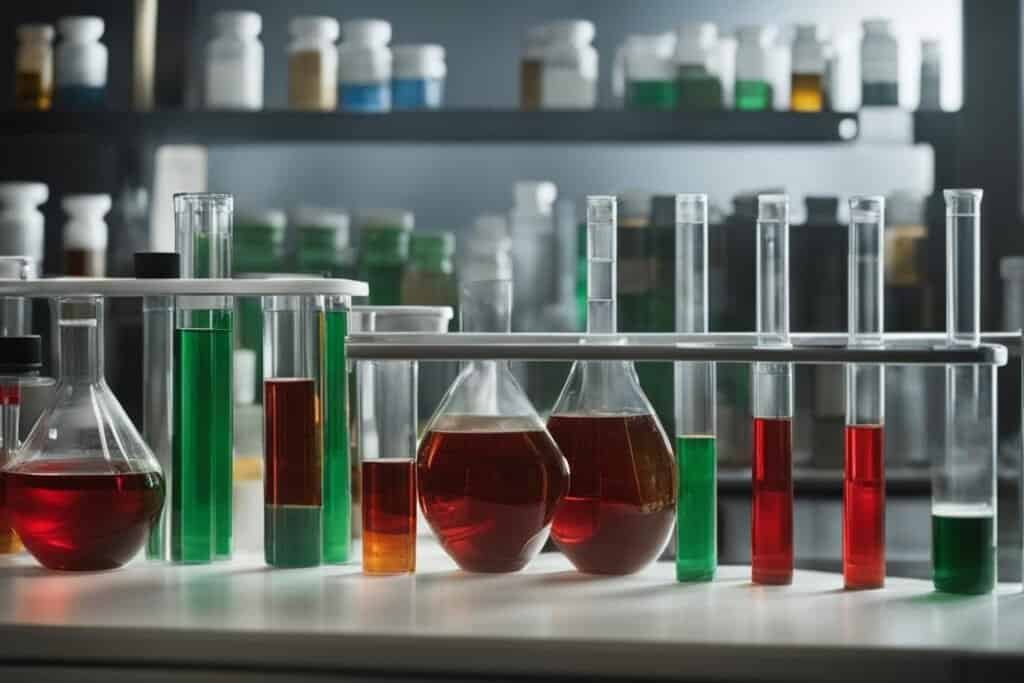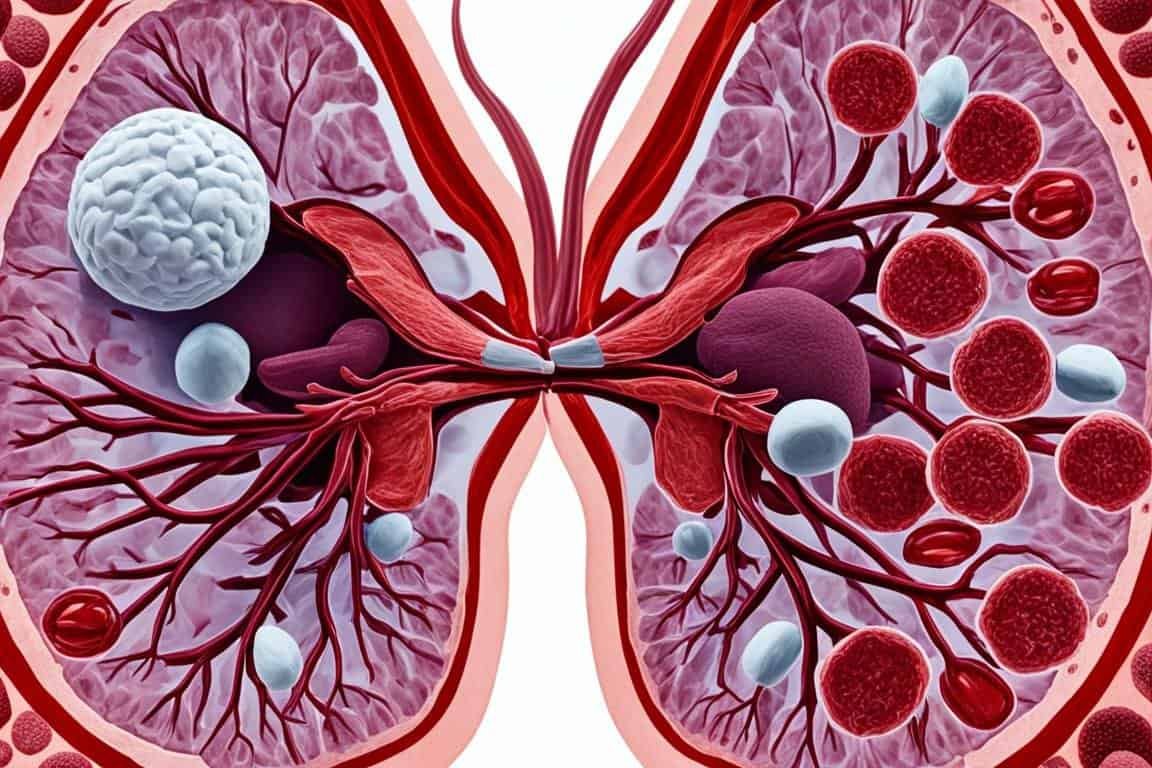Can cholesterol-lowering medications impact liver function tests? If you are taking cholesterol-lowering medications, it’s essential to understand their potential impact on your liver function tests. Liver function tests, also known as LFTs, are important in assessing the health of your liver and monitoring any potential side effects of medication.
Cholesterol-lowering medications, such as statins or HMG-CoA reductase inhibitors, are commonly prescribed to patients with cardiac conditions. While these medications are effective in reducing cholesterol levels, they may have an impact on liver function.
Research has shown that cholesterol-lowering medications can cause mild elevations of liver enzyme levels over time. These elevations are generally clinically insignificant and do not indicate significant liver damage. However, it is important to monitor liver function regularly to ensure optimal liver health.
It’s important to note that the pattern of liver injury with statin use is not specific, and the correlation between medication and liver function may not be immediately apparent. Therefore, physicians should not be deterred from prescribing or continuing statins based solely on liver function test results.
Key Takeaways:
- Cholesterol-lowering medications can lead to mild elevations of liver enzyme levels.
- These elevations are generally clinically insignificant and do not indicate significant liver damage.
- Regular monitoring of liver function tests is recommended to ensure optimal liver health.
- Physicians should not be deterred from prescribing or continuing statins based solely on liver function test results.
- Discuss any concerns or side effects with your healthcare professional for proper management and adjustment of the treatment plan.
How Statins Affect Liver Enzyme Levels
Statins, such as rosuvastatin and atorvastatin, are commonly prescribed cholesterol-lowering medications that work by reducing cholesterol production in the liver and lowering levels of low-density lipoprotein cholesterol (LDL-C). While statins are generally safe and well-tolerated, it’s important to understand their potential impact on liver enzyme levels as indicated by liver function tests (LFTs).
Occasionally, statins can cause mild elevations of liver enzymes, such as alanine aminotransferase (ALT) and aspartate aminotransferase (AST). However, these elevations are usually less than twice the upper limit of normal (ULN) and do not indicate significant liver damage.
It’s worth noting that more severe elevations of liver enzymes can occur with high-dose statin therapy or when statins are taken in combination with certain drugs. Therefore, regular monitoring of liver function tests is essential to ensure the ongoing liver health of individuals taking statins.
To rule out other liver diseases that may affect liver enzyme levels, additional diagnostic tests and assessments may be necessary. It’s crucial to work closely with your healthcare provider in interpreting and monitoring liver function test results to ensure the safe and effective use of statin medications.

In rare cases, statins may cause mild elevations of liver enzymes, but these elevations are usually insignificant and do not indicate significant liver damage. Regular monitoring of liver function tests can help ensure the ongoing liver health of individuals taking statins.
Common Side Effects of Cholesterol Medications
While statins are highly effective in lowering cholesterol and reducing the risk of cardiovascular events, they can have side effects in some individuals. It’s essential to be aware of the potential risks associated with statin therapy.
Muscle Pain and Damage
One of the most commonly reported side effects of statins is muscle pain. While this typically manifests as muscle aches or soreness, more severe cases of muscle damage can occur. In rare instances, statins can cause a condition called rhabdomyolysis, characterized by the breakdown of muscle fibers and the release of muscle fiber contents into the bloodstream. This can lead to kidney damage and other serious complications.
Liver Damage
Although statins can affect liver enzyme levels, significant liver damage is rare. In most cases, the elevation of liver enzymes is mild and not indicative of liver dysfunction. However, it is important to monitor liver function regularly, especially when taking high-dose statins or if you have pre-existing liver conditions.
Increased Blood Sugar or Type 2 Diabetes
Some studies suggest that statins may slightly increase blood sugar levels and the risk of developing type 2 diabetes. The mechanism behind this is not fully understood, but it is important to consider this potential risk, especially if you have other risk factors for diabetes.
Neurological Side Effects
In rare cases, statins have been associated with neurological side effects such as memory loss, confusion, and nerve damage. These side effects are usually reversible upon discontinuation of the medication.
Risk Factors
Several risk factors may increase the likelihood of experiencing side effects from statins. These include:
- Taking multiple medications, especially those that may interact with statins
- Having pre-existing liver or kidney disease
- Being female or of older age
It is important to discuss any concerns or potential side effects with your healthcare provider. They can help assess your individual risk factors and determine the most appropriate course of treatment.
Remember, while statins can have side effects, the benefits of cholesterol medication usually outweigh the risks. Most individuals tolerate statins well and experience significant improvements in their cholesterol levels and cardiovascular health. It’s essential to find a balance that helps manage your cholesterol effectively while minimizing any potential side effects.
Drug Interactions and Statin Safety
When taking statins, it’s important to be aware of potential drug interactions and safety precautions to ensure optimal effectiveness and minimize the risk of side effects. Certain medications and foods can interact with statins, affecting their efficacy and increasing the likelihood of adverse reactions. Understanding these interactions is crucial for relieving statin side effects and maintaining overall well-being.
Foods that Interact with Statins
One significant food-drug interaction to be mindful of is with grapefruit juice. Grapefruit juice contains compounds that can interfere with the enzymes responsible for breaking down statins in the body. This interference can lead to higher statin levels and an increased risk of side effects. Therefore, it’s advisable to avoid grapefruit juice while taking statins to ensure their safety and effectiveness.
Medications that Interact with Statins
Aside from food interactions, certain medications can also interact with statins. It’s important to consult with your healthcare team if you are taking any of the following medications:
- Certain antibiotics and antifungal drugs
- HIV treatments
- Immunosuppressants
These medications can interfere with the metabolism and breakdown of statins, potentially leading to higher levels in the body and increasing the risk of side effects. Be sure to discuss all the medications you are taking with your healthcare professional to identify any potential drug interactions with statins.
In some cases, to relieve or prevent statin side effects, your healthcare provider may recommend making adjustments to your statin therapy. This could involve temporarily stopping statin therapy, switching to a different statin medication, adjusting the dosage, or considering the use of coenzyme Q10 supplements. These measures can help alleviate side effects while still maintaining the cholesterol-lowering benefits of statins.

Conclusion
In conclusion, cholesterol-lowering medications, or statins, may lead to mild elevations of liver enzymes over time. However, these elevations are generally clinically insignificant, and physicians should not hesitate to prescribe or continue statin therapy based on liver function test results. It is still important to regularly monitor liver function to ensure optimal liver health.
When considering statin therapy, it is essential to weigh the benefits, such as reducing cholesterol levels and preventing cardiovascular events, against the potential risks of side effects. While statins are generally safe and well-tolerated, some individuals may experience side effects such as muscle pain, liver enzyme elevation, increased blood sugar, and neurological effects. However, the overall risk of these side effects is relatively low, and the potential benefits of statin therapy usually outweigh the risks.
If you do experience any side effects while taking statins, it’s crucial to discuss them with your healthcare professional. They can provide guidance on adjusting your treatment plan, including potentially switching to a different statin or adjusting the dosage. By working closely with your healthcare team, you can ensure that your cholesterol-lowering medication is both effective and well-tolerated.

